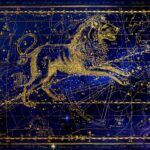Astrology has been a captivating facet of human culture for centuries, offering insights into personality, relationships, and the course of one’s life. However, did you know there isn’t just one universal system of astrology?
Various civilizations across the globe have developed their unique zodiac systems, each with its rich history, symbolism, and interpretation. From Western astrology to Vedic, Chinese, Mayan, Jewish, and Islamic astrology, the diversity of these traditions is as fascinating as it is illuminating.
Let’s delve into these astrological systems’ differences, similarities, and distinct features, shedding light on what each tradition brings to the cosmic table.
Table of Contents
Are There Differences Between Zodiac Systems?
There are notable differences between zodiac systems practiced worldwide. They stem from cultural, historical, and philosophical influences, shaping how each tradition perceives celestial phenomena and their impact on human lives. While some systems focus on the position of the sun, moon, and planets at the time of an individual’s birth, others incorporate elements such as lunar cycles, constellations, and even the movements of celestial bodies beyond our solar system.
Interpretations of astrological symbols and their meanings can vary significantly across cultures, leading to diverse perspectives on personality traits, compatibility, and destiny. Despite these discrepancies, all zodiac systems share a common goal: to provide insight and guidance to those seeking a deeper understanding of themselves and the world around them.
What Are the Most Famous Astrology Systems in the World?
Astrology’s reach and influence span various cultures, bringing unique interpretations and methods to the field. Here’s an overview of some of the most renowned astrology systems globally:
Western Astrology
One of the most widely recognized and practiced astrology systems is Western astrology, which originated in ancient Mesopotamia and Greece before evolving into its current form. Western astrology primarily revolves around the twelve zodiac signs, each associated with specific personality traits, elements, and planetary rulerships.
People born under these signs are believed to possess distinct characteristics influenced by the position of the sun, moon, and planets at their birth. Western astrology also incorporates birth charts, horoscopes, and astrological houses to provide comprehensive insights into an individual’s life path, relationships, and potential challenges.
Vedic Astrology
Vedic astrology, also known as Jyotish, is an ancient astrological tradition rooted in the sacred texts of India, notably the Vedas. Unlike Western astrology, which places significant emphasis on the sun sign, Vedic astrology considers the moon’s position at birth as the primary indicator of one’s personality and destiny.
Vedic astrology also uses a system of lunar mansions known as Nakshatras, each representing specific qualities and influences. Moreover, Vedic astrologers analyze the placement of planets in different houses of the birth chart, known as Kundli or Janam Kundali, to offer insights into various aspects of life, including career, health, and spirituality.
Chinese Astrology
Chinese astrology, deeply ingrained in Chinese culture and philosophy, is based on a twelve-year lunar cycle, with each year corresponding to a specific animal sign. Unlike Western astrology, which follows a solar calendar, Chinese astrology places greater importance on lunar phases and celestial movements.
Chinese astrology also incorporates the five elements—wood, fire, earth, metal, and water—which interact with the animal signs to create a complex system of personality traits, compatibility, and fortune. People born under a particular animal sign are believed to share specific characteristics and predispositions, with their fortunes influenced by the interplay of animal signs, elements, and celestial alignments.
Mayan Astrology
Mayan astrology, practiced by the ancient Mayan civilization of Mesoamerica, offers a unique perspective on the relationship between celestial cycles and human existence. Unlike other astrological systems focusing on twelve zodiac signs, Mayan astrology uses a sacred calendar known as the Tzolk’in, comprised of twenty-day signs and thirteen numbers, resulting in a 260-day cycle.
Each day’s sign carries its symbolic meaning and energy, reflecting different aspects of life, personality traits, and spiritual paths. Furthermore, Mayan astrologers interpret the alignment of celestial bodies, such as planets and constellations, within the context of the Tzolk’in to provide guidance and predictions for individuals and communities.
Jewish Astrology
Jewish astrology, deeply rooted in Jewish mysticism and Kabbalistic teachings, offers a spiritual approach to understanding the cosmic forces in the universe. While Jewish astrology shares some similarities with Western astrology, such as using twelve zodiac signs, its interpretation and application are influenced by Jewish religious beliefs and rituals.
Jewish astrologers also examine the Hebrew calendar, lunar phases, and mystical texts such as the Zohar to discern divine messages and insights. Jewish astrology also incorporates the concept of Mazal, or celestial influence, which is believed to shape one’s destiny and spiritual journey.
Islamic Astrology
Islamic astrology, also known as Arabic astrology or Ilm al-nujum, has its roots in ancient Arab and Persian traditions, blending elements of astronomy, mathematics, and mysticism. Islamic astrologers developed sophisticated methods for calculating planetary positions and casting horoscopes, drawing upon knowledge from Greek, Persian, and Indian sources.
While Islamic astrology shares some commonalities with Western and Vedic astrology, it also incorporates unique features such as the use of Arabic lunar mansions, known as Manazil al-Qamar, and the interpretation of celestial phenomena within the context of Islamic theology and spirituality. Islamic astrology emphasizes the interconnectedness of the material and spiritual worlds, offering insights into destiny, fate, and the divine plan.
What are the Main Differences Between These Astrology Systems?
Astrology is more than just reading horoscopes; it varies significantly across different cultures. Each system, from Western to Vedic to Chinese astrology, has its own unique approach based on its cultural background.
- Western Astrology: Based on the sun's position at your birth, it divides the year into twelve zodiac signs, each linked to certain traits. It's widely used for personal and psychological insights.
- Vedic Astrology: Also known as Jyotish, this Indian system focuses more on the moon than the sun and uses additional lunar positions called Nakshatras to provide detailed readings.
- Chinese Astrology: Operates on a 12-year cycle, each year represented by an animal. It combines this with the Five Elements (wood, fire, earth, metal, and water) to predict people’s fortunes and traits.
- Mayan Astrology: Uses a 260-day calendar, each day influencing human activities and energies differently, deeply intertwined with spiritual beliefs.
- Jewish Astrology: Links celestial movements with Kabbalistic teachings, focusing more on spiritual lessons than predictions.
- Islamic Astrology: Merges ancient Greek, Persian, and Indian knowledge, focusing on lunar phases and ethical and spiritual contexts.
Is One Zodiac System More Accurate Than Others?
The question of accuracy in astrology is subjective and largely depends on personal beliefs and cultural background. Each system offers a different perspective and uses various methods to make astrological predictions. For some, the precision of Vedic astrology, with its sidereal zodiac and additional lunar mansions, may seem more accurate. For others, the psychological depth of Western astrology or Mayan astrology’s spiritual and communal focus might resonate more deeply.
Rather than debating which system is more accurate, it’s beneficial to understand that each system provides valuable insights into human nature and the cosmos from different cultural viewpoints. Exploring various systems can enrich one’s personal and spiritual growth and offer diverse tools for understanding oneself and the world.
Should you Follow Astrology Systems that are Different from Your Tradition?
Exploring astrology systems different from your tradition can be a rewarding and enlightening experience, offering fresh perspectives and insights into other facets of your personality and life path. While it’s important to honor and respect your cultural and spiritual heritage, embracing diversity in astrology can expand your horizons and deepen your understanding of the interconnectedness of humanity.
Whether you’re drawn to the psychological depth of Western astrology, the spiritual wisdom of Vedic astrology, or the cyclical harmony of Chinese astrology, there is value in exploring multiple perspectives and finding resonance with what speaks to your soul. By remaining open-minded and curious, you can enrich your astrological journey and cultivate a deeper connection to the cosmos.
Conclusion
The world of astrology is vast and varied, with each system offering a unique lens through which to view the cosmos and our place within it. From the psychological depth of Western astrology to the spiritual richness of Vedic astrology, and the cultural heritage of Chinese astrology, each tradition enriches our understanding of human behavior and celestial influence.
Exploring different zodiac systems broadens our horizons and deepens our appreciation for the diverse ways in which human cultures have sought to understand and interpret the universe. Studying various astrological systems can provide valuable perspectives and tools, whether for personal growth, spiritual insight, or simply a deeper appreciation of cultural diversity.
In the end, the study of astrology, in all its forms, encourages us to reflect on our lives, make informed decisions, and grow in wisdom and understanding. It reminds us that, despite our differences, we all look to the stars to find meaning and guidance in this vast, interconnected universe.











